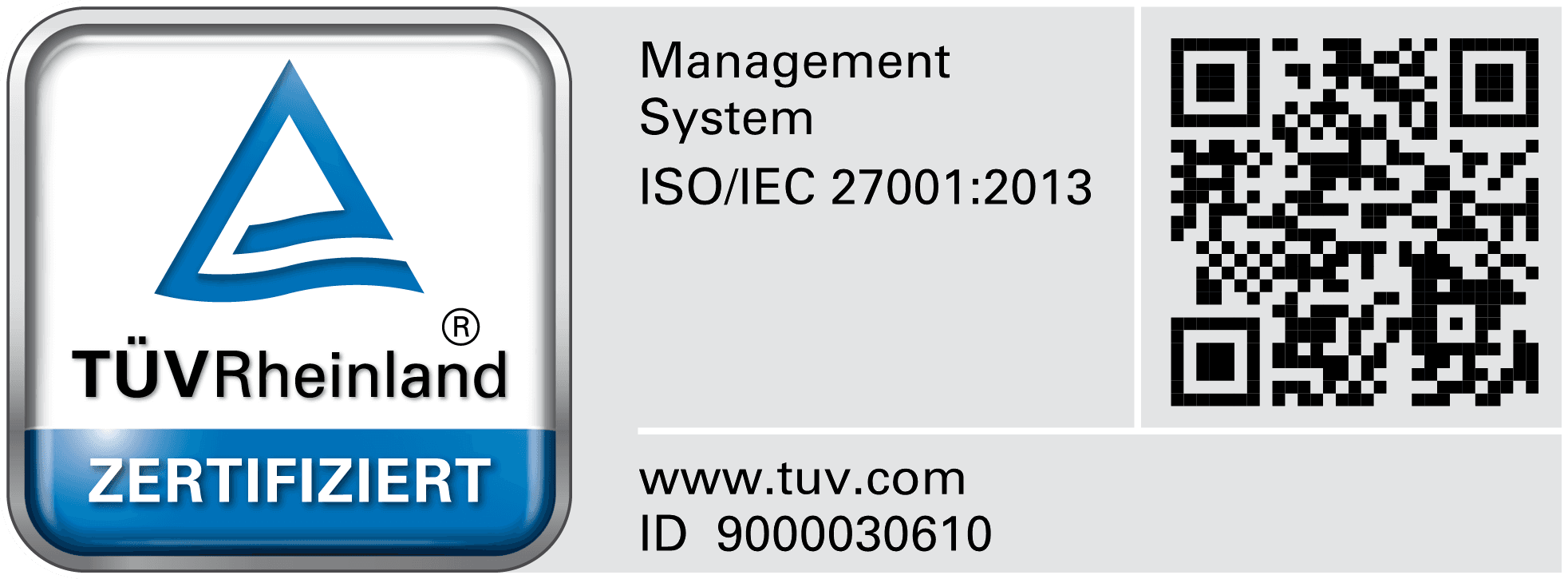[Blog Post]
Cybersecurity 2024: Focus Areas in Login and Authentication
Discover the future of cybersecurity with Bare.ID: Passwordless Authentication, Zero Trust, and Data Sovereignty take center stage among the cybersecurity trends of 2024.
16. January 2024


Cybersecurity 2024: Focus Topics in Login and Authentication
Discover the future of cybersecurity with Bare.ID: Passwordless Authentication, Zero Trust, and Data Sovereignty take center stage among the cybersecurity trends of 2024.
In the dynamic field of cybersecurity, continuous innovation and adaptation are crucial. Predictions for trends in 2024 are already emerging, including a fascinating compilation of cybersecurity trends from TÜV Rheinland. Commonly highlighted topics include regulatory compliance, AI-driven threat detection, and cloud security. Against this backdrop, Bare.ID has focused specifically on developments in login and authentication, identifying three key topics: passwordless multi-factor authentication (MFA), Zero Trust, and the increasing importance of data sovereignty.
Passwordless Multi-Factor Authentication (MFA)
Passwordless authentication, a key trend for 2024, marks a shift from traditional passwords to more secure and user-friendly methods. This development is significant, as passwords often represent a vulnerability exploited by cybercriminals. Passwordless authentication grants access to systems or services through methods that do not require password input. Examples include biometric data, such as fingerprints or facial recognition, or hardware tokens physically carried by the user.
Advantages of Passwordless Authentication:
- Increased Security: Passwordless systems provide protection against traditional attack methods such as phishing and credential stuffing by eliminating reliance on easily guessed or stolen passwords. Unique biometric data or hardware tokens make it much harder for hackers to gain access to user accounts.
- Improved User Experience: Passwordless methods offer a seamless and faster login experience. Users no longer need to remember or input complex passwords, significantly simplifying the login process.
- Reduced Management Costs: Password management, resets, and support can be costly for organizations. Implementing passwordless authentication can significantly reduce these costs and the associated administrative burden.
Zero Trust Models
Zero Trust is a security concept based on the assumption that threats can exist both inside and outside the network. The principle of "never trust, always verify" is central to this approach. In a Zero Trust model, every attempt to access network resources is treated as a potential threat and verified accordingly, regardless of the user's position within the network. This ensures that every access request is authenticated, authorized, and continuously validated.
Advantages of Zero Trust:
- Enhanced Security and Risk Mitigation: By continuously verifying all access attempts, Zero Trust reduces the risk of data breaches. It minimizes the likelihood of attackers infiltrating the network unnoticed and causing harm.
- Reduced Attack Surface: Zero Trust prevents users or devices already within the network from automatically gaining further access. This limits an attacker’s ability to move laterally within the network, even if they gain initial entry.
- Adaptability and Flexibility: Zero Trust models are particularly effective in dynamic environments where users access the network from various locations, such as in remote work scenarios. They enable secure access from diverse devices and locations, making them ideal for modern, flexible work practices.
Data Sovereignty and Regulations like NIS2
The growing importance of data sovereignty due to legal and regulatory requirements presents new challenges for organizations. Frameworks such as NIS2, KRITIS, the German IT Security Act, Supply Chain Due Diligence Act, Whistleblower Protection Act, and EU Data Governance Act are driving the need for stricter IT security measures. Organizations must implement appropriate safeguards to meet these requirements and protect their data from unauthorized access and misuse.
Advantages of Data Sovereignty and Regulatory Compliance:
- Enhanced Data Protection and Security: Adhering to regulations like NIS2 strengthens data protection and security measures. This leads to better protection against data breaches and cyberattacks through stricter controls and safeguards.
- Increased Trust and Reputation: Organizations that demonstrate compliance with strict data protection standards build trust with their customers and partners. This can enhance customer loyalty and brand reputation, as consumers and business partners increasingly value privacy and security.
- Legal Certainty and Avoidance of Penalties: Compliance with data protection laws and regulations ensures legal security for organizations. This helps avoid potential fines and legal disputes arising from data breaches.
Conclusion
In light of these developments, Bare.ID is ideally positioned to address the challenges in cybersecurity. With its advanced platform supporting passwordless MFA, Zero Trust models, and compliance with stringent data protection regulations like NIS2, Bare.ID offers a secure, forward-looking solution for businesses striving to succeed in today’s digital landscape. By continuously innovating and adapting to the latest trends in login and authentication, Bare.ID ensures a secure, reliable, and user-friendly experience for its clients.
The significance of these trends cannot be overstated. Passwordless MFA not only enhances security but also improves user experience by eliminating the hassle of password management. Zero Trust models are essential in an era where traditional security perimeters are becoming obsolete. The growing importance of data sovereignty and compliance with regulations like NIS2 ensures that organizations maintain the confidentiality and integrity of their data. Bare.ID leads the way in these developments, providing its customers with a platform that meets today’s security needs while being future-ready.
Member of





Get in touch
Request a non-binding consultation now and discover how Bare.ID can be integrated into your IT environment.
Software comparison
Contractual & Compliance
About Bare.ID
Newsletter
Sign up for our newsletter to stay updated.
I agree to receive further information and news from Bare.ID. For more information, please see our Privacy Policy.
Bare.ID represents user-friendly Identity & Access Management in the cloud. With Bare.ID, digital business processes and applications can be connected to a local user directory, benefiting from centralized security and Single Sign-On. Whether On-Premise, Hybrid, or Cloud, Bare.ID offers a multitude of pre-configured integrations. 100% security, Made in Germany.
Bare.ID's offerings are exclusively intended for business customers in accordance with §14 BGB. All prices are to be understood as net prices, plus applicable VAT at the time of billing.
Bare.ID is a product and registered trademark of Bare.ID GmbH - an AOE Group company © 2024 - All rights reserved.
